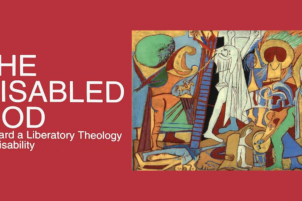In this week’s Torah portion, we read about the death of Sarah, but more importantly we read the most fascinating exchange around the purchase of her grave plot. The people of the land on which Abraham finds himself greatly respect him and venerate him. As such they are very eager to give him the plot that he wants for free. They make no bones about the fact that they are doing favors for someone that they believed to be “a mighty prince in their midst.”
Abraham refuses this generosity, and insists on giving market value for the property. The choreography of the scene could not be clearer. They are so awed by the opportunity to do something for such a prince that they wish to do it for free, just to show respect. He not only pays, but bows low to make sure that his indication is that he means to give equivalent respect in return.
In the coming months, RespectAbility will be working on a number of new ways to elevate the voices of leaders with disabilities, Jewish and secular. Our primary motivation is that these authentic voices need to be part of all of our national conversation, so that the important perspectives and talent that our speakers have the offer can enrich our communities.
As we begin to plan these initiatives, we are planning significant training and coordination efforts for up-and-coming speakers, working with organizations to create opportunities, and everything you might expect. We are also working on budgets for accommodations for prospective speakers, because we realize that that is not yet a commonplace occurrence. With all this, however, it is critical to our budgets, to provide honoraria for each speaker.
This isn’t really about the dire financial need in the disability community. No small honorarium for a speaking engagement will take the place of the competitive integrated employment that is so important for the success of people with disabilities. Also true is that the honoraria that we offer for our speakers, or teaching at one of our workshops, is often far less than the visionaries who are giving of their talents deserve. On the other hand, it’s probably more than the minimum that they would accept, because many of them are committed to the cause, or want exposure, and might work for free.
But the honorarium, coming as it does from the Latin word for honor, or the Hebrew, kavod, isn’t really about that. It’s about a way to signal, as Abraham signaled, our respect for the talent, time and perspective of the person who is speaking. It’s our way of bowing low to the perspective speaker to say, “you may be grateful for this opportunity, but it is we who are honored that you would give of your time.”
For those of us that work in the world of social justice, it’s not always so easy to be as readily transactional as Abraham, who could easily spare the price of the land. From a purely practical perspective, many times our real choices are to accept a service for free, or to not receive that service at all. The question that I encourage us to ask, especially as we are using the talented people with disabilities, is what types of honor can we afford to show? Sometimes that honor is financial, and sometimes food or reciprocal favors, sometimes it may be good publicity, and sometimes something else. As people with disabilities begin to have more opportunities to offer their talents to the world, let us base our offers on what we can afford and what we believe the service to be worth, not simply on that which a person grateful for an opportunity might accept.
Let us learn from Abraham that a fair price is a kind of honor, and extend that where we can.
Thank you and Shabbat Shalom!
Matan Koch
Director of Project Moses and General Counsel
RespectAbility







